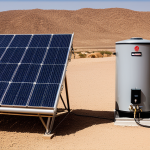Essential Considerations Before Integrating Smart Technology in Your Bristol Home
When planning smart home integration in Bristol, start by assessing your home’s infrastructure. Compatibility with smart technology depends on factors such as Wi-Fi connectivity, electrical setup, and existing heating or security systems. Understanding these elements ensures a smoother upgrade and less technical disruption.
Bristol-specific regulations also play a crucial role. Some local policies encourage sustainable tech use through incentives, but compliance with building codes and privacy laws is mandatory. Checking for any local grants or rebates can reduce installation costs, so researching these beforehand is beneficial for smart home planning in Bristol.
This might interest you : Transform your kent countryside garden: expert tips for crafting a wildlife haven
Setting clear goals helps tailor the project to your needs—whether convenience, energy efficiency, or security is your priority. For instance, homeowners focused on lowering energy bills should consider devices aligned with Bristol’s climate conditions and sustainability efforts. Clarity in objectives supports informed decisions throughout the modernization process.
To summarize, successful smart technology readiness in Bristol hinges on evaluating home compatibility, understanding local rules and incentives, and defining specific goals. This groundwork protects your investment and maximizes the benefits of home automation basics tailored to Bristol properties.
Also read : Illuminate your cornwall home: a unique guide to choosing energy-efficient lighting
Essential Considerations Before Integrating Smart Technology in Your Bristol Home
Before diving into smart home planning in Bristol, assessing your home’s infrastructure is crucial. Check if your current wiring, Wi-Fi coverage, and electrical system can support various smart devices. Older homes may require upgrades to ensure smooth operation and avoid connectivity bottlenecks when adding home automation basics such as lighting controls or thermostats.
Understanding Bristol-specific regulations and incentives is another key consideration. Local policies can affect what smart technologies are compliant, especially regarding energy efficiency standards or data privacy rules. Additionally, take advantage of any government grants or rebates designed to promote green energy use or smart home modernization within the Bristol area, as these can ease the financial burden.
Setting clear goals helps guide the entire project. Determine whether you prioritize modernization, convenience, or energy efficiency. For instance, if reducing utility bills is a top concern, look for devices with proven energy-saving capabilities tested for Bristol’s climate. Defining objectives early ensures that your smart home planning in Bristol leads to a practical, future-ready solution tailored to your lifestyle.
Choosing the Right Smart Home Technologies for Bristol Properties
Selecting the best smart home products in Bristol starts with understanding what suits your property and lifestyle. Popular devices include smart thermostats, lighting systems, and home security automation Bristol homeowners favor. These technologies provide convenience and safety while allowing remote monitoring and control, fitting well with Bristol’s focus on efficient living.
Energy-efficient devices are crucial to align with Bristol’s sustainability goals. Smart thermostats adjust heating based on usage patterns, reducing energy waste in Bristol’s temperate climate. LED-enabled smart lighting can be programmed to reduce electricity consumption, offering cost savings and environmental benefits in line with local energy standards.
Compatibility is key. Ensuring new technologies work with existing systems avoids costly replacements later. For instance, integrating smart security systems with current alarm setups or ensuring lighting controls sync with your home’s wiring boosts overall system efficiency and user experience.
Future-proofing should guide your choices. Opt for devices supporting widespread protocols like Zigbee or Z-Wave, which offer flexibility for upgrades and expansion. This strategic selection guarantees long-term satisfaction and avoids frequent costly changes, a smart approach to home automation basics in Bristol.
Essential Considerations Before Integrating Smart Technology in Your Bristol Home
Assessing your home’s infrastructure is fundamental in smart home planning Bristol projects. Start by evaluating your current Wi-Fi network’s strength and coverage since stable connectivity is essential for reliable operation of smart devices. Electrical wiring and system capacity should also be checked, especially in older Bristol homes, to ensure they can handle additional smart home automation basics without frequent outages or safety concerns.
Understanding Bristol-specific regulations and incentives is equally crucial. Local building codes may limit certain wireless frequencies or require specific installation standards. Furthermore, Bristol sometimes offers grants or rebates supporting energy-efficient upgrades—utilizing these incentives can significantly offset your initial investment and improve your smart technology readiness.
Setting clear, practical goals early in your planning process helps maintain focus and budget control. Decide which priorities matter most—whether it’s enhancing security, boosting energy efficiency, or improving everyday convenience. For example, if energy savings top your list, targeting devices such as programmable thermostats that adapt to Bristol’s moderate climate will maximize your results. These goals streamline technology selection and ensure your Bristol smart home integration aligns with your lifestyle and expectations.
Essential Considerations Before Integrating Smart Technology in Your Bristol Home
Smart home planning Bristol demands a detailed evaluation of your home’s infrastructure to guarantee smart technology readiness. Begin by analysing Wi-Fi coverage—without a stable network, connected devices may lag or disconnect, undermining the efficiency of your Bristol home automation basics. Assess your electrical system’s capacity; older properties often need rewiring or updated circuit breakers to handle new smart devices safely.
Understanding Bristol-specific regulations and incentives is vital. Bristol enforces building codes that can affect allowable smart device functions, particularly regarding energy efficiency and wireless transmissions. Research local incentive programs offering grants or rebates to offset costs—these can substantially reduce your out-of-pocket expenses while encouraging sustainable upgrades suited to Bristol’s environment.
Setting clear, measurable goals early improves project focus. Are you targeting enhanced convenience, like remote lighting and security control, or prioritising energy efficiency to lower bills? Defining your priorities will help you select compatible technologies that align with Bristol’s climate and regulatory environment, ensuring your smart home integration is both practical and future-proof. Goals also streamline budgeting and help anticipate potential challenges during installation or operation, securing a smooth transition to a smarter Bristol home.
Essential Considerations Before Integrating Smart Technology in Your Bristol Home
When embarking on smart home planning Bristol initiatives, the foremost consideration is assessing your home’s infrastructure for smart technology readiness. A robust Wi-Fi network is indispensable; weak signals or dead zones can undermine device reliability. Moreover, electrical capacity must be evaluated, especially in older Bristol properties, to prevent overloads from multiple smart devices. Upgrading wiring or network extenders might be necessary to support Bristol home automation basics effectively.
Understanding the local regulatory landscape is equally critical. Bristol enforces specific building codes and energy efficiency standards that impact device selection and installation methods. For instance, compliance with these codes ensures your smart technology adheres to safety and sustainability requirements. Additionally, familiarizing yourself with Bristol’s incentives, such as energy-efficient technology rebates, can significantly offset initial costs and promote environmentally responsible modernization.
Clear goal-setting is vital to align your smart home project with personal priorities. Define whether convenience, security, or energy efficiency is paramount. Specifying these objectives early informs which devices and systems best fit your lifestyle and Bristol’s temperate climate. For example, prioritizing energy savings would encourage integrating programmable thermostats and sensor-driven lighting as core Bristol home automation basics. This focused approach streamlines smart home planning Bristol tasks and enhances overall satisfaction.
Essential Considerations Before Integrating Smart Technology in Your Bristol Home
Evaluating your home’s infrastructure is foundational in smart home planning Bristol. Begin by assessing Wi-Fi strength and coverage, as a robust network ensures reliable operation of Bristol home automation basics like thermostats and lighting controls. Older homes often require electrical upgrades—such as enhanced wiring or circuit breaker replacements—to safely support additional smart devices.
Understanding smart technology readiness also means knowing local regulatory requirements. Bristol enforces building codes that impact device installation, especially concerning energy efficiency and wireless communication. Homeowners should explore available incentives, such as grants or rebates, specifically designed to promote sustainable technology upgrades within the city. These can significantly ease the financial investment of a smart home transformation.
Clear goal-setting steers your project effectively. Identify whether your priorities lie in convenience, energy savings, or home security. For example, targeting energy efficiency involves selecting devices compatible with Bristol’s moderate climate and local standards. Defining these goals early maintains focus during the integration process, helping you choose technologies that align with your lifestyle and ensuring long-term satisfaction in your smart home planning Bristol experience.
Essential Considerations Before Integrating Smart Technology in Your Bristol Home
Assessing your home’s infrastructure is the foundation of smart home planning Bristol. Start by thoroughly evaluating your Wi-Fi coverage to ensure consistent connectivity, essential for seamless operation of all devices. Homes with weak networks may require range extenders or upgrades. Electrical capacity must be reviewed carefully; older Bristol properties often need rewiring or circuit updates to safely support multiple smart gadgets without outages or hazards.
Understanding Bristol-specific regulations and incentives is critical. Regulations may dictate installation standards or limit certain radio frequencies, affecting device choices. Additionally, Bristol offers various grants and rebates aimed at promoting sustainable upgrades. Leveraging these can cut costs while advancing your smart technology readiness aligned with local energy efficiency and privacy standards.
Clear goal setting drives the entire modernization effort. Decide whether convenience, energy efficiency, or enhanced security is your priority. For example, targeting energy savings favors programmable thermostats and sensor-based lighting—core Bristol home automation basics tailored to the city’s climate. Aligning your objectives early streamlines technology selection and installation, ensuring your smart home system meets both practical needs and regulatory conditions.
Essential Considerations Before Integrating Smart Technology in Your Bristol Home
Assessing your home’s infrastructure is the first critical step in smart home planning Bristol. This means thoroughly evaluating your Wi-Fi strength and electrical capacity to ensure compatibility with new devices. Homes in Bristol, especially older constructions, often require network enhancements or electrical upgrades to handle multiple smart elements. Overlooking these foundational aspects risks intermittent connectivity or device failures, impeding your overall smart technology readiness.
Understanding Bristol-specific regulations and incentives is equally important. Bristol mandates particular building codes affecting device installation and energy efficiency compliance. These local rules also influence what smart products you can install and the methods used. Moreover, Bristol offers targeted incentives like rebates for adopting energy-conscious technologies, which can reduce upfront costs and promote sustainable modernization tailored to Bristol properties.
Setting clear project goals guides your planning and device selection. Define if your priority is convenience, energy savings, or security—each focus streamlines which Bristol home automation basics you incorporate. For example, prioritizing energy efficiency leads to choosing smart thermostats that adapt to Bristol’s mild climate, optimizing savings. Early goal clarity helps avoid costly, unnecessary features and ensures your smart home system suits your lifestyle, making your smart home planning Bristol both efficient and satisfying.
Essential Considerations Before Integrating Smart Technology in Your Bristol Home
Evaluating your home’s infrastructure is the first critical step in smart home planning Bristol. Reliable Wi-Fi coverage is essential since smart devices rely on constant connectivity; addressing weak signals with extenders or upgraded routers ensures smooth operation of Bristol home automation basics like thermostats and security sensors. Electrical assessments are equally important—older homes may need rewiring or enhanced circuit breakers to safely support multiple smart systems without overload risks.
Understanding Bristol-specific regulations and incentives helps align your project with local policies. Bristol enforces rules on energy efficiency and wireless installations, influencing which devices are approved. Taking advantage of Bristol’s grants or rebates for sustainable upgrades not only reduces costs but also promotes smart technology readiness in line with the city’s environmental goals. Homeowners should verify these incentives early to incorporate them effectively in budgeting.
Setting clear goals is vital for successful modernization. Define if convenience, security, or energy savings dominate your priorities. For example, prioritizing energy efficiency would steer you toward programmable thermostats and automated lighting tailored to Bristol’s moderate climate. Such targeted planning streamlines device selection, installation, and ensures your smart home planning Bristol delivers practical, long-lasting benefits aligned with your lifestyle.
Essential Considerations Before Integrating Smart Technology in Your Bristol Home
A thorough evaluation of your home’s infrastructure is essential for effective smart home planning Bristol. Start with a detailed assessment of your Wi-Fi system since reliable connectivity underpins all Bristol home automation basics. Weak or inconsistent signals can disrupt device communication, affecting performance and usability. Addressing dead zones with extenders or mesh networks is often necessary.
Next, review your electrical wiring and capacity. Many older Bristol homes require upgrades to handle the increased load from new smart devices safely. Without proper electrical support, outages or safety hazards may arise, compromising your smart technology readiness.
Understanding local regulations is vital. Bristol enforces building codes impacting smart device installation, focusing on energy efficiency and communication standards. Compliance ensures safety and legal conformance. Additionally, Bristol offers grants and rebates encouraging sustainable upgrades. Utilizing these incentives can soften upfront costs, making modernization financially viable.
Finally, setting clear, measurable goals greatly influences success. Identify priorities—be it enhanced convenience, improved security, or energy savings tailored to Bristol’s climate. This clarity guides device selection and ensures your system aligns with your lifestyle and budget. Prioritising goals early avoids costly missteps and maximizes long-term satisfaction in your smart home journey within Bristol.
Essential Considerations Before Integrating Smart Technology in Your Bristol Home
Assessing your home’s infrastructure is the cornerstone of smart home planning Bristol. Begin by thoroughly testing your Wi-Fi network’s coverage and stability, as insufficient connectivity hinders the function of core Bristol home automation basics like thermostats and lighting controls. Electrical system evaluation is also essential; older Bristol homes may require upgrades such as rewiring or enhanced circuit breakers to safely support multiple smart devices without overloads.
Understanding smart technology readiness involves familiarizing yourself with Bristol-specific regulations and incentives. Bristol enforces energy efficiency and building codes that can affect device choice and installation methods. Moreover, the city offers grants and rebates aimed at encouraging sustainable tech adoption, which can significantly mitigate costs while aligning upgrades with local environmental goals.
Setting clear goals is critical to guide your modernization project. Prioritize whether convenience, energy savings, or security is most important. For example, choosing devices optimized for energy efficiency, like programmable thermostats suited to Bristol’s temperate climate, ensures your smart home planning Bristol is both practical and cost-effective. Establishing precise objectives early supports targeted technology selection, smoother installation, and long-term satisfaction with your smart home system.


